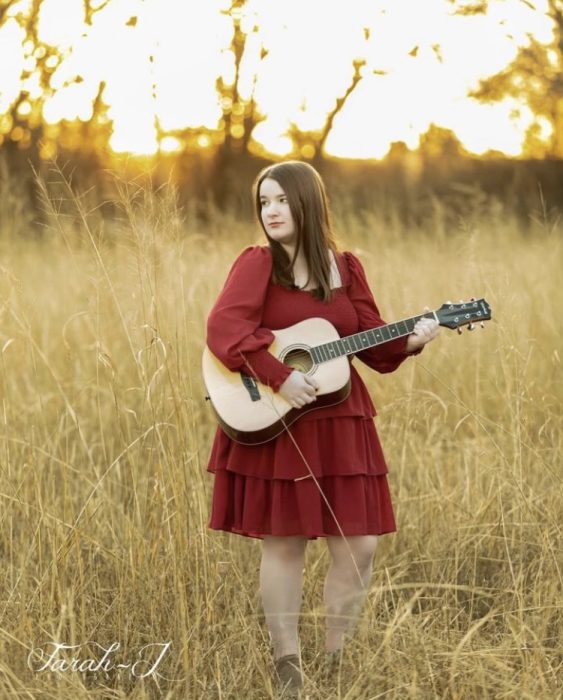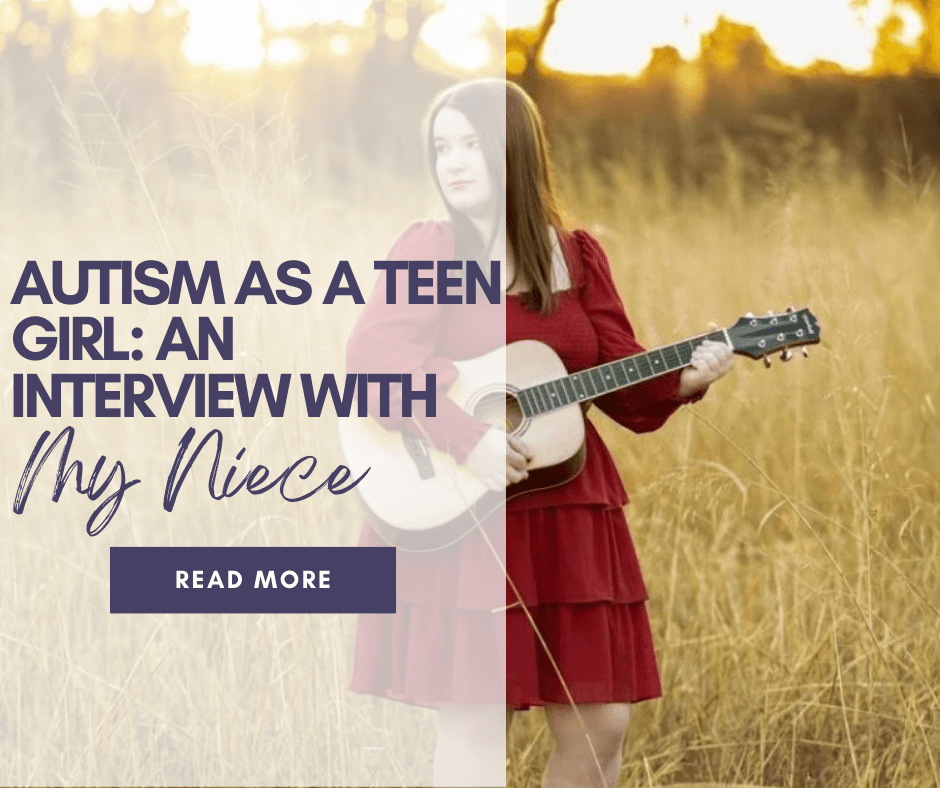My niece, now 18, was diagnosed with autism when she was 16 years old – older than most are when they receive the diagnosis. While girls are often diagnosed later than boys, our family always knew something was different about her, particularly as she got older.
Among one of the things that stood out: she read the book, Caring for Your Baby and Young Child Birth to Age 5, cover to cover when she was an early reader – perhaps only six or seven years old – and to this day can probably answer any question you may have about pediatrics, recalling from memory every last detail of that three-inch-thick book.
She’s the most passionately political person you may ever meet and cares so deeply about social causes, she’ll engage anyone – anyone – in a spirited debate and will count off facts and data to back up her arguments, all of this conducted at a level 10. There are no casual conversations with her.
For Autism Awareness month, I sat down to interview my niece on behalf of Austin Moms so our readers can learn about some challenges and misperceptions of autism directly from the mouth of someone who has it.
Please allow me to introduce you to my niece, Avery-Claire LeBaron, who co-authored this post with me.

ME: Hi Aves, thanks for doing this with me. First, educate me: is it politically incorrect to say someone is “autistic” versus saying, “they have autism?”
AVERY-CLAIRE: Autistic is my preference. “Having autism” makes it sound like a disease when it’s really just a part of who I am.
ME: Got it. I often describe you to people as being high-functioning because you seem neurotypical in so many ways to me. I just learned that you hate that term. Why are you so against it? And are you just against it in reference to yourself? Or do you have a problem with its use across the board?
A-C: I personally don’t like this term at all and a lot of autistic people I know agree with me. It affects people’s perceptions of me. When people say I’m high-functioning, I feel they are dismissing my needs as an autistic person. Yes, I may appear more “neurotypical” to the naked eye, but I still require accommodations to get through everyday life.
ME: What kinds of accommodations do you need to get through everyday life?
A-C: I often have headphones with me to filter out noise, and I keep fidget toys like pop-its around as well. People think when I need to use them that I’m not paying attention or that I’m being rude, which isn’t the case.
ME: When did you first begin to notice that you were different from your peers?
A-C: This is actually an interesting story – I never really thought I was all that different through elementary school. It wasn’t until my mom and I were watching Parenthood one day and I noticed a lot of similarities to the character, Max, who is autistic. That school year I started 6th grade and girls started to get very cliquey and that was hard for me to understand.
ME: What differences, specifically, did you start to notice? I’d also love to hear some of the characteristics you have that you believe are “classic autistic” and the ones you feel don’t quite fit what people think of when they think of an autistic person.
A-C: I’m more fidgety compared to other kids and people tell me I talk louder than others. I also have a lot of stimming behaviors – jiggling my leg or singing or self-regulating in some way. I don’t really know about the terms for “classic autistic” because autism is a spectrum and I’m just… on that spectrum.
ME: What were your feelings about your diagnosis?
A-C: I was kind-of like, “Yeah, already know that. Now people will take me more seriously.”
ME: Because before the diagnosis, what did you feel was happening? Or how did you feel you weren’t being taken seriously?
A-C: I was struggling a lot in my high school choir at the time because the girls used a lot of social cues I don’t understand. [The stress of it] led to a lot of missing school, despite the fact that I’m pretty intelligent. A lot of people just thought I was socially weird.
ME: What does autism look like in your life?
AC: Loud noises are absolutely the worst. Oh boy, fire drills. The meltdowns I would have over fire drills! I would force myself to be sick to avoid them. The noise of the alarm literally makes my ears feel like they’re burning. It’s awful.
I hate being in crowds and get overwhelmed by noise, which I think is pretty common [for autistic people].
And I stumble over social cues a lot. I just tend to not think before I speak and I also bring up touchy subjects like politics a lot. Apparently it’s a personal thing? But why? I’ll never understand why certain things are okay to talk about and others aren’t.
ME: What do you wish people would say/not say or do/not do with regard to an autistic person?
A-C: Honestly, just respect our needs and don’t tell us we’re crazy or overreacting.
Note: I asked Avery to educate the reader a bit here – tell us what situations may happen that a neurotypical person might respond to by saying she’s overreacting.
A-C: Well the needs differ from individual to individual. If someone says they are autistic and they have certain needs, don’t assume they’re too “high functioning” and dismiss those needs. Believe that person and accommodate them as they request – allow them to stim in public or wear headphones, if it might be perceived as weird.
ME: You’ve told me that you’re interested in going into autism advocacy as a career. What would you hope that looks like for you specifically?
A-C: I want to be a journalist as a career and one of the main things I would write about is my life with autism – so this is pretty good practice! This also means I can hopefully work from home and write about other things I enjoy (politics, mental health).
I have a lot of opinions on politics and advocating for minorities in general – the Black community, LGBTQIA+ community, women’s rights, and disability acceptance in general. I think the first thing I’d want to educate audiences about is how you can accept an autistic friend or family member, but still have micro-aggressions toward them.
ME: Lastly – do you have any resources you’d recommend for others in your shoes? Something that helps you feel more connected and understood:
A-C: Paige Layle on Instagram and YouTube! And FlappyFroggy and AutismCareerPathways, both on Instagram – they’re both amazing as well.













